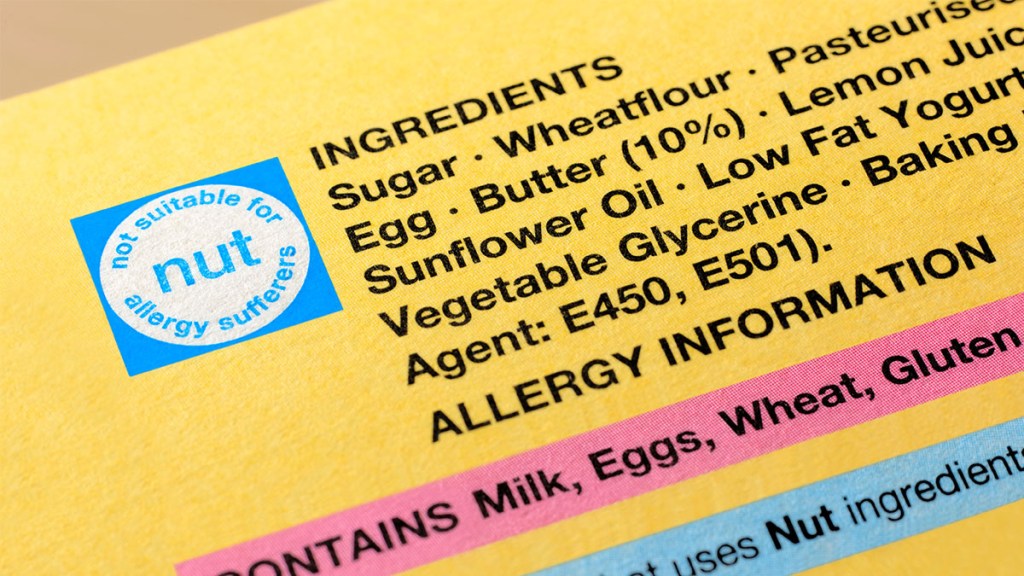Hydrogenated Oils Can Raise Your Risk of a Heart Attack, Increase Insulin Resistance + Make You Feel Sad — How to Avoid Them
Easy ways to spot these unhealthy oils on the labels of processed food — and how to cook without them

We’ve come a long way from the 70s and 80s, when all fat was considered bad for us. Today, we know that many fats, including those in nuts, avocado and fatty fish, are incredibly healthy. Then there are the bad fats, like hydrogenated oil and trans fats. These are created when liquid oils are turned into solid fats, and consuming them can have negative effects on your health. Here’s a closer look at what you need to know about these harmful forms of fat.
What exactly is hydrogenated oil?
Simply put, hydrogenated oils are vegetable oils — such as corn, sunflower or safflower oil— that are infused with hydrogen molecules during the manufacturing process. This turns a liquid fat into a solid one, making it thicker and easier to spread (like margarine, for example), explains Ana Abad-Jorge, EdD, MS, RDN, associate professor of clinical nutrition at James Madison University in Harrisonburg, Virginia. The hydrogenation process also increases the shelf life of the product and the smoke point of the oil, making it better for frying.
There are actually two types of hydrogenated oils — partially hydrogenated oils and fully hydrogenated oils. Partially hydrogenated oil contains trans fats (a.k.a., trans fatty acids), which is considered the worst type of fat for people to consume. “Trans fatty acids are actually worse for you than saturated fats,” says Abad-Jorge.
Fully hydrogenated oils are converted into saturated fats, which aren’t healthy either. Indeed, the official Dietary Guidelines for Americans advise limiting calories from saturated fats to less than 10% of your total calorie intake. With fully hydrogenated oils, “hydrogenation takes a liquid oil that was previously unsaturated and makes it completely saturated,” Abad-Jorge explains.
Hydrogenated oils lurk in thousands of foods
Most commonly you’ll find these oils in processed foods such as fried foods, packaged baked goods (such as cookies, doughnuts and cakes), dairy and nondairy coffee creamers, ready-to-use pastry dough, whipped toppings, frosting and snack foods, says Emily Feivor, RDN, a registered dietitian/nutritionist at Long Island Jewish Forest Hills Hospital in Queens, New York. They also lurk in shortening, margarine, frozen pizza and microwave popcorn. (Click through for a simple way to make your own healthy microwave popcorn).
How hydrogenated oils affect your health
Recent research highlights the dangers of these common oils. Indeed, a 2021 study in the journal BMC Medicine found that regular intake of butter and margarine — both of which contain hydrogenated oils — over a period of 16 years was associated with a greater risk of death from any cause among adults aged 50 to 71. And that’s not all: Keep reading for more risks of hydrogenated oils.
Hydrogenated oil harms the heart
Regular consumption of hydrogenated oils can have a harmful effect on your heart health. A study in a 2021 issue of the International Journal of Food Sciences and Nutrition found that adults with the highest intake of hydrogenated vegetable oils had a 68% greater risk of heart attack over a 13-year period than those with the lowest intake.
“Partially hydrogenated oils, or trans fats, increase bad LDL cholesterol and lower good HDL cholesterol,” Feivor says. Fully hydrogenated oils usually contain a high amount of saturated fats, which can lead to similar effects.
Hydrogenated oil may raise the risk of diabetes
What’s more, research shows that consuming a diet that’s high in saturated fats and trans fatty acids promotes inflammation and contributes to insulin resistance, which is a precursor to type 2 diabetes. And a report from the famous Nurses’ Health Study found that women with the highest intake of trans fatty acids had C-reactive protein (CRP) levels (a marker of inflammation) that were 73% higher. Additional research links high CRP to an increased risk of developing type 2 diabetes. (Click through to our sister site for 12 ways to reverse prediabetes.)
Hydrogenated oil can bring on the blues
Interestingly, another study found that a high intake of trans fatty acids can take a toll on mood, reducing the positive ones and increasing the negative ones. The researchers explain that inflammation, which is linked with both diet and depression, may be to blame.
How to avoid hydrogenated oils
In 2015, the Food and Drug Administration determined that partially hydrogenated oils no longer merited the “generally recognized as safe” designation and subsequently banned their use in processed foods, effective January 1, 2021. That was a major step in the right direction, but some packaged and fried foods may still contain trans fats.
Here’s why: Food manufacturers can list 0 grams of trans fat on the product’s label if there are fewer than 5 grams of it per serving. To make the cut, food manufacturers sometimes give the nutritional information for a tiny serving size that no one would actually eat. That means there may be less than .5 grams of trans fats in the serving that’s specified but if you end up eating four times that amount — which might be a reasonable portion — you’d consume close to 2 grams of trans fat.
Search labels for key words

That’s why it’s essential to read the ingredients lists on packaged foods when you go shopping. If you see “hydrogenated oil,” “partially hydrogenated oil” or “shortening” on the list, the product contains trans fats, regardless of the claim on the label. Avoid those foods as best you can.
Eat more whole foods
One of the easiest ways to avoid hydrogenated oils in your diet is to “choose whole, unprocessed foods,” Feivor says. “Aim to make the majority of your diet vegetables, fruits, nuts, lean protein and unsweetened, low-fat dairy products.” Bonus: Eating mostly whole foods can speed weight loss. Click through to learn how emulsifiers in food can lead to weight gain.)
Cook with these oils
When cooking, use liquid oils such as olive oil, vegetable oil or avocado oil, instead of butter, margarine or shortening, and bake or broil your food instead of frying it. Click through to learn how grapeseed oil can lower cholesterol.
Making these changes can have a significant impact on your health. Research shows that when people reduce their trans fatty acid intakes by replacing partially hydrogenated vegetable oils with monounsaturated or polyunsaturated fats, their harmful cholesterol levels decrease and so does their risk of developing coronary heart disease.
This content is not a substitute for professional medical advice or diagnosis. Always consult your physician before pursuing any treatment plan.
For more info on healthy (and unhealthy) oils:
Move Over, Fish Oil — Doctors Weigh In on The Astonishing Benefits of Krill Oil
The Rumor About Canola Oil Being Banned in Europe Has A Grain Of Truth













